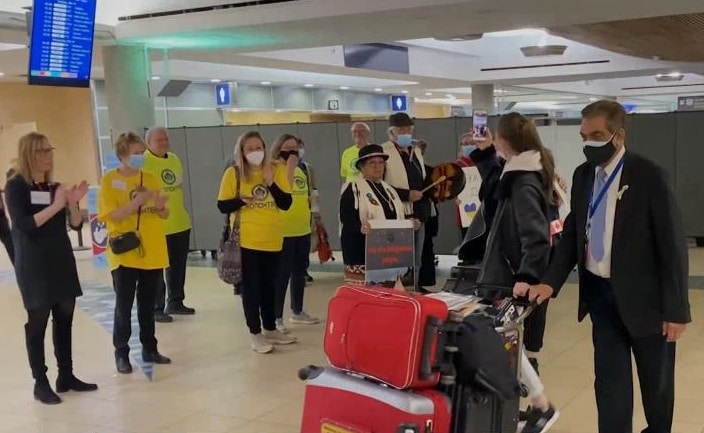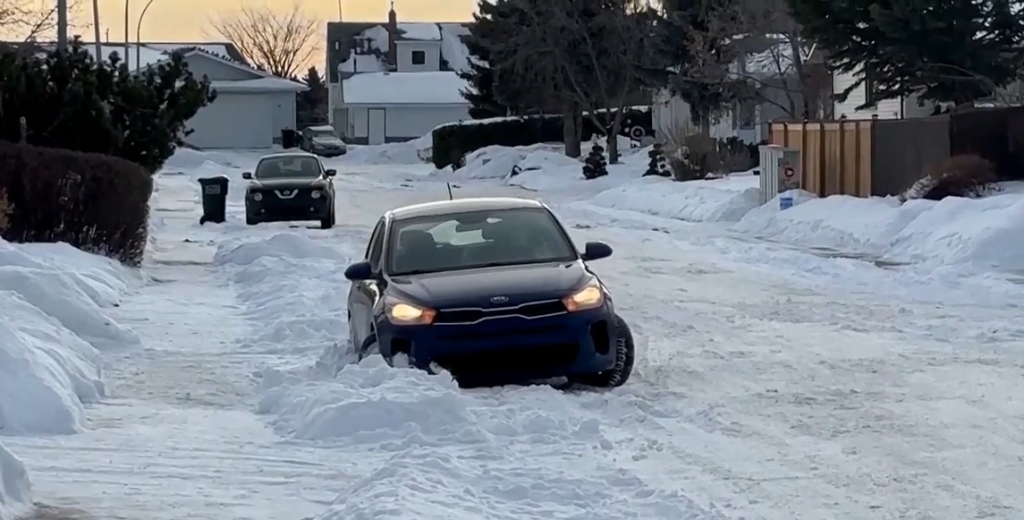What to know from settlement agencies as more Ukrainians touch down in Canada

Posted March 30, 2022 6:57 pm.
As Ukrainians arrive in Canada on emergency visas, the executive director of the Edmonton Mennonite Centre for Newcomers (EMCN) says she’ll still call those fleeing the Russian invasion ‘refugees’, because that’s what they are, as already strained agencies adapt to Canada’s new way of welcoming the displaced.
“Right now, with the situation with Ukrainian arrivals, the term refugee can be confusing. From a government funding standpoint, refugee means something very specific,” said Meghan Klein, executive director of the Edmonton Mennonite Centre for Newcomers.
“We expect that it will be some figuring out because people coming in on this special visitor visa are no different than those coming in on a refugee claim. What is different is really how we deploy our resources,” she explained.
Settlement agencies were already busy with the backlog of pandemic immigration, now add two new crises just six months apart, in Afghanistan and now Ukraine.
RELATED
- More than 60 Ukrainians fleeing Russian invasion land in Edmonton
- Concerns raised over potential lack of support for Ukrainians arriving in Canada
- Hindu, Sikh refugees from Afghanistan arrive in Metro Vancouver, B.C.
ENCM is also facing additional pressure following the closure of the Edmonton Emergency Relief Services last fall — largely due to the pandemic. It has left them picking up the pieces while they’re still looking for an official space, other than a converted classroom currently being used to get people essentials like clothing and toiletries.
“We will welcome people into the agency, ask them what they need and figure out how to get it to them.”
Klein says all donations to settlement agencies are welcome, however, when someone ties a financial contribution to one specific refugee group, it creates legal complications.
“Someone says I want to help Ukrainian refugees, then that donation gets earmarked for that. However it means we can’t use it in our programs, we can’t use it in the resources we purchased,” explained Klein.
As language programs and mental health supports are being prepared for those fleeing conflict, Klein reminds those looking to help there are refugees fleeing conflict beyond the headline of the day.
“Our two obvious ones are people in Afghanistan and Ukraine and we’re talking a lot about those groups in the media. But here in Edmonton, we have more refugees arriving from other conflict zones than from Afghanistan.”
Encouraging those looking to help to reach out to their local settlement agency, to see what is they need to support those looking for safety in their community.








